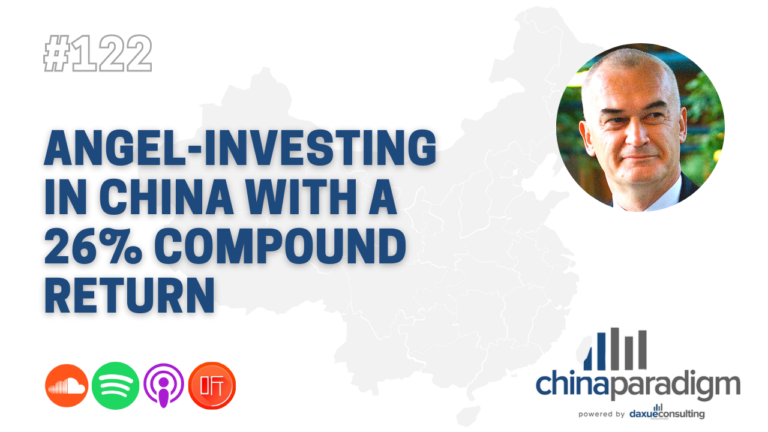China paradigm interviewed David Ammerschlaeger, a consultant and psychologist active in the industry of psychotherapy in China. During the interview, the now-experienced psychologist discusses China’s psychological therapy market and help us understand the ins and outs of mental therapy in China. By dint of his knowledge and expertise in the field, David Ammerschlaeger provides a comprehensive overview of the challenges that the industry faces and draws parallels between the practices in China and the one in the West.
David Ammerschlaeger, experienced therapist in China who runs a WeChat blog about psychology and mental healthcare
David Ammerschlaeger started his career as a consultant and auditor on the old continent. After more than one decade dedicated to business and management, China Paradigm’s guest decided to start a Master’s degree in Science in Psychology at the Manchester Metropolitan University.
In 2016, the Ammerschlaeger joined the People’s Republic of China to apply professional standards that he shares with the British Psychological Society to China’s psychological therapy market. Now he works as a psychological counselor and executive coach for individuals and companies and runs a WeChat blog named PsiCare.

[David Ammerschlaeger specialist of China’s psychological therapy market]
A WeChat blog exploring the psychotherapy in China
PsiCare is minded to supporting people in finding tools to improve their self-knowledge. The blog contains various articles that aim at regrouping professionals from different fields to collect and share their knowledge, research and experiences. With his blog, David Ammerschlaeger wants to offer a new way of learning about psychology. He dedicates his efforts in making complex ideas and theories accessible and understandable for all people. Thus, the blog promotes psychotherapy in China and allows non-professional to access knowledge and start finding ways to improve their life and understanding about themselves.
Mental therapy in China: the challenge of selecting the right therapist
Throughout the discussion, David Ammerschlaeger depicts the challenge of choosing the right therapist in China. While this task might already appear demanding and time-consuming in Europe, finding a competent therapist on a non-regulated market like the one of China often brings considerable difficulties.
«Psychologists in China regroup the psychological counselor and the psychotherapist. This is something that is very grey in China and basically, anybody can call himself a psychotherapist and do counseling in China. »
Due to the hardship of finding a qualified professional for mental therapy in China and the lack of awareness of clients in this sector, Chinese people tend to opt for counselors that are not adequate. David Ammerschlaeger warns on the danger of selecting inappropriate specialists especially when it comes to mental therapy in China.
China’s psychological therapy market particularities
While people might think that counseling in China is a completely different exercise than it is in Western countries, David Ammerschlaeger reminds us that:
“Psychology has been developed as a science. Psychology is researched through scientific methodologies and so, they apply to all human beings”.
Nevertheless, patients have a different approach when it comes to mental health in China. They tend to avoid visiting specialists and often prefer to work with coaches. Moreover, as people are afraid of being diagnosed with mental health disorders, they tend to wait too long before visiting a professional.
Also, David Ammerschlaeger explains that counselors exercising on China’s psychological therapy market sometimes have to adapt their therapeutic methods in order to fit with the local culture. The psychologist illustrates his thought with group therapies for psychotherapy in China:
«I have a lot of people having social anxiety and social phobia, avoiding personality disorders and this kind of issue would be extremely well treated with group therapy. Now, you are right, because of social or cultural standards, many people want to keep their issues for themselves and don’t speak up very easily. »
Related reading: a Chinese psychological therapist
Listen to this episode here:










